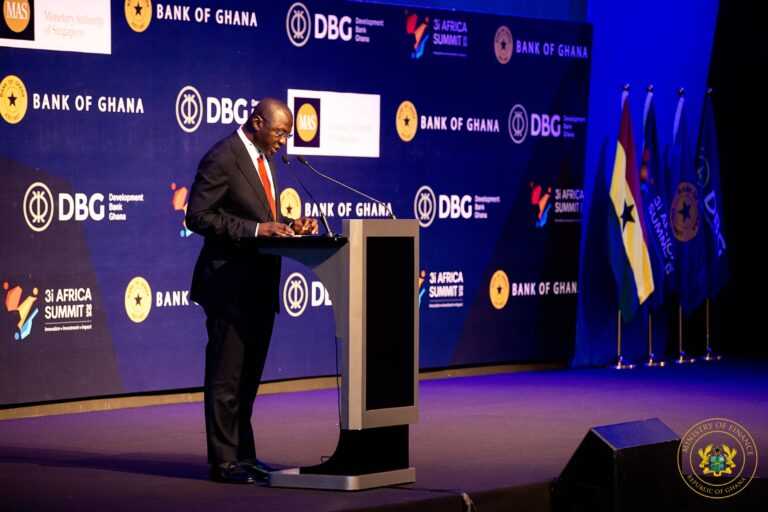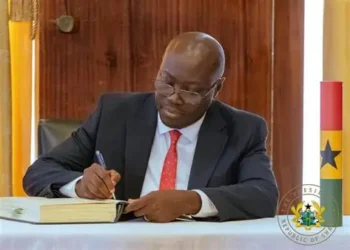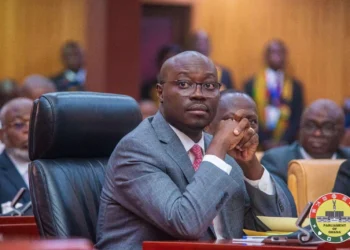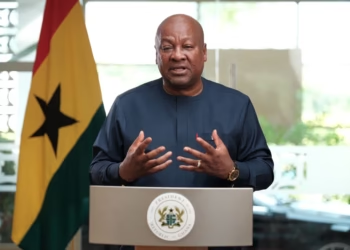Finance Minister Mohammed Amin Adam has stated that the 2024 Mid-Year Budget Review in Ghana will emphasize housing and road financing through public-private partnerships (PPP), rather than introducing new taxes.
In a recent engagement with key financial stakeholders, the minister outlined the government’s strategic focus and addressed concerns related to economic growth and investor confidence.
Minister Amin Adam emphasized that there would be no new taxes introduced in the upcoming budget review, as Parliament has already approved the necessary tax measures for the year. Instead, the government aims to leverage PPP arrangements to finance critical infrastructure projects, particularly in housing and road development. This approach is designed to stimulate economic growth without increasing the tax burden on citizens.
The Finance Minister, along with his directors, met with representatives from the Ghana Association of Bankers, Non-Bank Financial Institutions, Civil Society Organisations, academia, and trade associations. This engagement aimed to reinforce the commitment of the banking sector to the nation’s economic growth by deepening their involvement in PPP arrangements.
“We need to be intentional about growth,” said Dr. Amin Adam. “Bringing banks to help accelerate PPP in financing public investments and projects is crucial.” He highlighted the government’s limited ability to secure external credit due to efforts to maintain debt sustainability, making domestic PPP financing a key strategy.
Reassuring the Financial Sector
Addressing the financial sector’s concerns, the minister assured that Treasury bills (T-bills) would remain untouched. “As the Minister, we do not intend to touch the T-bills. They are safe,” he stated, seeking to instill confidence among bankers and financial industry players. Dr. Amin Adam urged the financial community to trust the positive trajectory of Ghana’s economy, reinforced by data indicating that the country is on the right path to recovery.
“The tough decisions taken during the crisis are different from the decisions we need to make during economic recovery,” he said, encouraging bankers to play a proactive role in building investor confidence. He stressed the importance of communicating Ghana’s effective recovery to potential investors to foster a more robust investment environment.
John Awuah, CEO of the Ghana Association of Banks, acknowledged the necessity for improved market assurance. He noted that banks had not fully adopted government instruments, indicating some hesitancy within the sector.
However, Awuah expressed the banks’ readiness to support economic recovery efforts, provided that credit support does not pose undue risk to the industry. “We are ready to support the economic recovery where businesses will thrive,” Awuah said, emphasizing the importance of balancing support for economic growth with maintaining the stability of the banking sector.
Awuah also raised concerns about the delay by rating agencies in recognizing Ghana’s economic recovery trajectory. Despite this, he mentioned that banks have begun their own analyses of the country’s progress, indicating a proactive approach within the sector to assess and support the nation’s recovery efforts.
The 2024 Mid-Year Budget Review’s focus on housing and road financing through PPP highlights the government’s commitment to sustainable economic growth. By avoiding new taxes and leveraging private sector investment, the government aims to address critical infrastructure needs while fostering a conducive environment for business and investment.
Dr. Amin Adam’s engagement with financial stakeholders underscores the collaborative approach needed to achieve these goals. The support and confidence of the banking sector are crucial for the success of the PPP strategy, ensuring that Ghana can effectively mobilize domestic resources to drive development.
By focusing on housing and road financing via PPPs and maintaining a stable tax regime, the government seeks to stimulate economic activity, create jobs, and enhance the nation’s overall development. The collaboration between the government and the financial sector will be pivotal in realizing these objectives, fostering a resilient and prosperous economy.
READ ALSO: Ablakwa Requests NPRA Clarification On SSNIT-Rock City Deal























